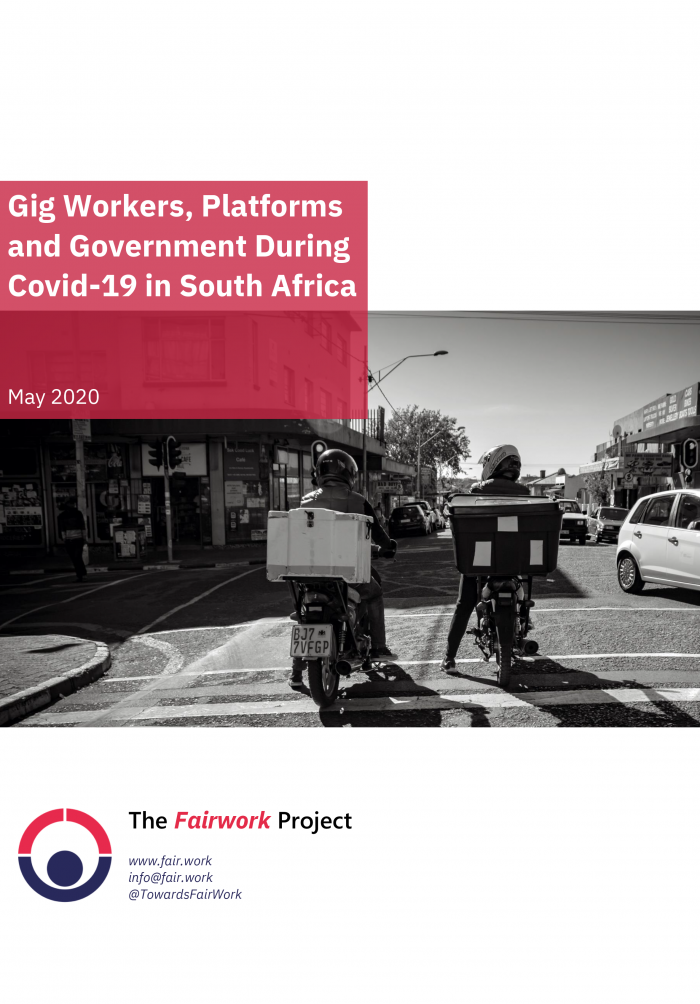Gig-Workers, Platforms and Government during Covid-19 in South Africa


How are the tens of thousands of gig workers in South Africa – those performing tasks for digital platforms like Uber, Uber Eats and SweepSouth – being supported during the Covid-19 crisis? We report here a review of gig economy platform and government responses, supplemented by a small survey of worker experiences.
While gig workers are by no means the only vulnerable group in South Africa suffering during the pandemic, their non-standard employment status is proving a particular challenge. Platforms – arguably incorrectly and possibly even illegally – tend to regard their workers as independent contractors rather than employees. Notwithstanding this, a small number of platforms have stepped up during lockdown. For example, we outline ways in which SweepSouth and M4Jam have tried to offset income losses for their workers, and cite getTOD’s efforts to enable online working for its tradespeople.
But the majority of platforms have taken no responsibility to compensate workers for by far their major problem: loss of earnings. Yet our survey suggests a majority of gig workers have lost their jobs entirely, while those able to work during lockdown have, on average, lost four-fifths of their income. As a result, many reported that just getting food to eat was their top priority. While platforms have long marketed themselves as facilitators of supplementary income streams, all of this exposes the complete dependency of most workers on their platforms as the basis for their livelihood.
Suggested citation:
Fairwork. 2020. Gig Workers, Platforms and Government During Covid-19 in South Africa. Oxford, United Kingdom.